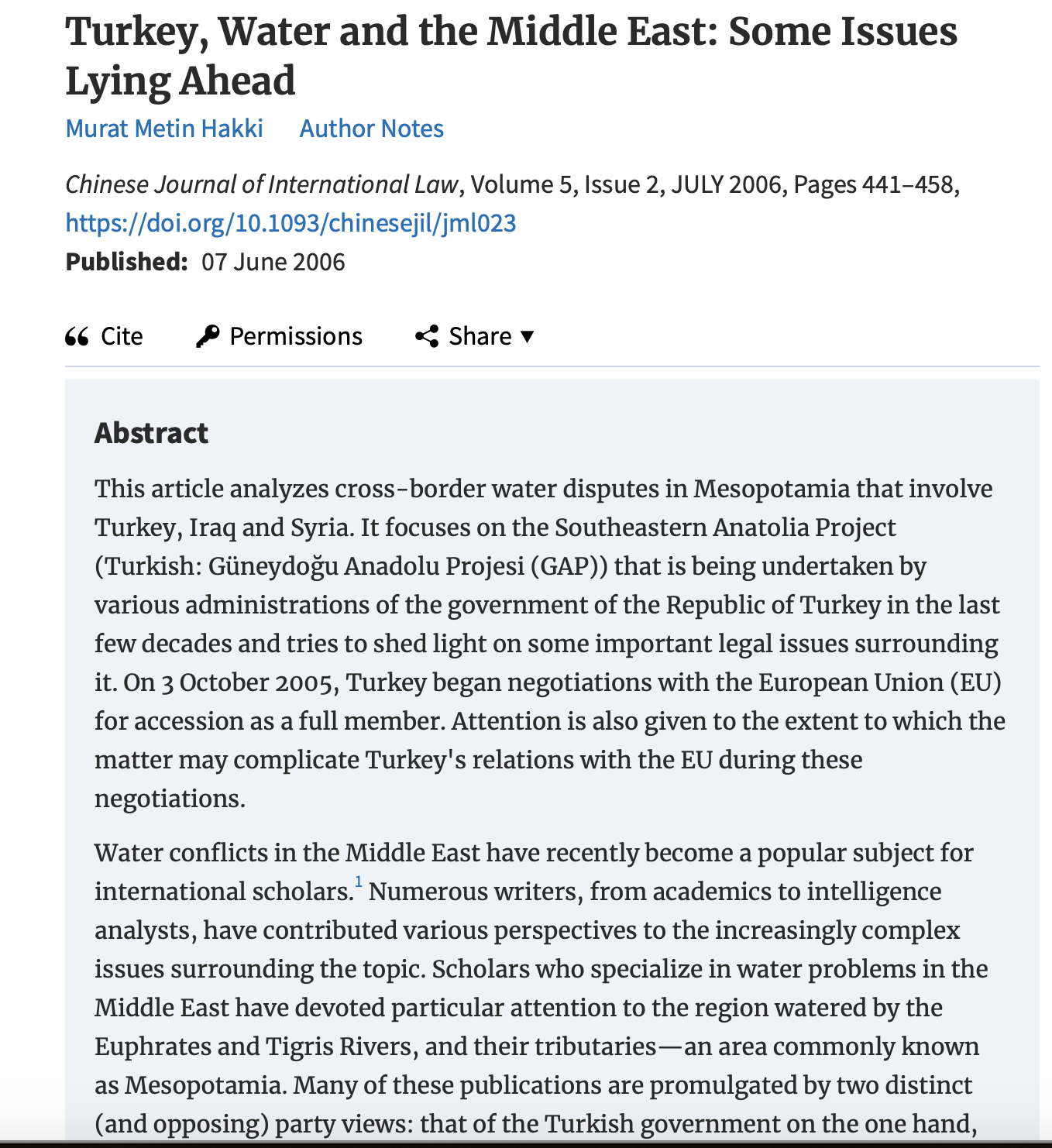Turkey, Water and the Middle East: Some issues lying ahead
Author(s): Hakki, Murat Metin
Published by: In: Chinese Journal of International Law; Vol. 5, Issue 2; Oxford University Press; 2006;
Published in: 20010106
Format: article
Region: All
Link: Visit this Publication
Abstract:
This article analyzes cross-border water disputes in Mesopotamia that involve Turkey, Iraq and Syria. It focuses on the Southeastern Anatolia Project (Turkish: Güneydo?u Anadolu Projesi (GAP)) that is being undertaken by various administrations of the government of the Republic of Turkey in the last few decades and tries to shed light on some important legal issues surrounding it. On 3 October 2005, Turkey began negotiations with the European Union (EU) for accession as a full member. Attention is also given to the extent to which the matter may complicate Turkey's relations with the EU during these negotiations.
Water conflicts in the Middle East have recently become a popular subject for international scholars.1 Numerous writers, from academics to intelligence analysts, have contributed various perspectives to the increasingly complex issues surrounding the topic. Scholars who specialize in water problems in the Middle East have devoted particular attention to the region watered by the Euphrates and Tigris Rivers, and their tributaries—an area commonly known as Mesopotamia. Many of these publications are promulgated by two distinct (and opposing) party views: that of the Turkish government on the one hand, and that of the Syrian and Iraqi governments on the other.2 Consequently, much of the work underpinning the growing body of scholarship in this area reflects the biases of each position.
In analyzing the longstanding conflicts over water rights in Mesopotamia, this paper endeavors to accomplish several things. First, to give readers a more complete understanding of the current dispute, a detailed account of the opposing views of Turkey and Syria/Iraq is provided. Second, the merits of each position are weighed in light of the current state of public international law, with particular attention given to Turkey's desire to exercise extensive control over the watercourses at issue. Lastly, the potential effects of the changing political climate in the region—namely Turkey's accession talks with the EU, Iraq's recent regime change, and the uncertainty of Syria's political future—are considered and discussed.
Topics: IWRM, Transboundary Water Management,
Keywords: IWRM, Transboundary water issues,
